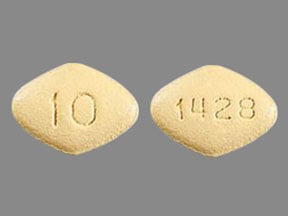
Farxiga Coupons & Savings Card – Discount Prices from $324.26
Brand for: Dapagliflozin propanediol
My prescription
Edit
10MG, Dapagliflozin Propanediol (30 Tablets)
Select pharmacy

CVS
$324.26
COUPON PRICE
Albertsons
$359.30
COUPON PRICE
Walgreens
$363.60
COUPON PRICE
Walmart
$541.01
COUPON PRICEFarxiga savings card
Show this card to your pharmacist
CVS
$324.26
BIN
ID
PCN
GRP
019876
LH15D5040F
CHIPPO
LHX
Powered by
Related SGLT2 inhibitors prescriptions
More prescriptions for kidney disease
Related SGLT2 inhibitors prescriptions
More prescriptions for kidney disease
Price history for Farxiga (brand) & Dapagliflozin Propanediol (generic)
30 Tablets, 10MG
Average retail price for Farxiga
Average retail price for Dapagliflozin Propanediol
Average SaveHealth price for Dapagliflozin Propanediol
Our price history data is based on aggregated prescription data collected from participating pharmacies in America. Our prescription data updates daily to reflect the latest price changes. If you notice a missing data point, it means there wasn't sufficient data available to generate a monetary value for that date.
Over the last 12 months, the average discount price of Farxiga is $372.48 using the SaveHealth savings card. That's an average savings of 85.79% on Farxiga with our discount card.
*Retail prices are based on pharmacy claims data, and may not be accurate when we don't have enough claims.
Farxiga (Dapagliflozin Propanediol) dosage forms
Dosage Quantity Price from Per unit 5MG 30 Tablets $324.26 $10.81 10MG 30 Tablets $324.26 $10.81
| Dosage | Quantity | Price from | Per unit |
|---|---|---|---|
| 5MG | 30 Tablets | $324.26 | $10.81 |
| 10MG | 30 Tablets | $324.26 | $10.81 |
What does the drug Farxiga do?
Farxiga is a medication used to improve blood sugar control in adults with type 2 diabetes. It works by helping the kidneys remove glucose from the bloodstream through urine. Additionally, Farxiga is used to reduce the risk of hospitalization for heart failure in adults with type 2 diabetes and established cardiovascular disease or multiple cardiovascular risk factors. It is also prescribed to treat heart failure and chronic kidney disease in certain patients.
Is Farxiga a weight loss pill?
Farxiga is not primarily a weight loss pill. It is a medication used to improve blood sugar control in adults with type 2 diabetes. While some patients may experience weight loss as a side effect, it is not its main purpose.
Which is better, Ozempic or Farxiga?
The choice between Ozempic and Farxiga depends on the individual's specific medical condition, treatment goals, and any other health considerations. Ozempic (semaglutide) is a GLP-1 receptor agonist primarily used for managing type 2 diabetes and can also aid in weight loss. Farxiga (dapagliflozin) is an SGLT2 inhibitor used for type 2 diabetes, heart failure, and chronic kidney disease.A healthcare provider would consider factors such as the patient's blood sugar control, cardiovascular health, kidney function, and potential side effects when determining which medication might be more suitable. It is important for patients to discuss their options with their healthcare provider to determine the best treatment plan for their individual needs.
Does Farxiga cause loss of appetite?
Farxiga (dapagliflozin) is not commonly associated with loss of appetite as a side effect. However, individuals may experience different reactions to medications. If there is a noticeable change in appetite or any other concerning symptoms, it is advisable to consult a healthcare provider for further evaluation.
What does Farxiga do for your kidneys?
Farxiga (dapagliflozin) is a medication that can help protect the kidneys in individuals with chronic kidney disease (CKD). It works by reducing the risk of kidney function decline, end-stage kidney disease, and cardiovascular events in patients with CKD. Farxiga helps to lower blood sugar levels and can also reduce the workload on the kidneys, which may slow the progression of kidney damage.
